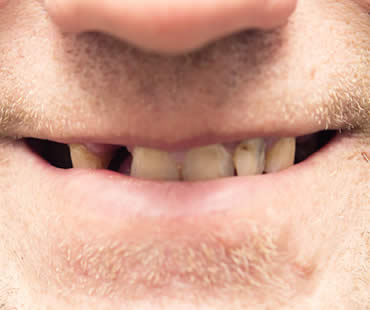
by Dr. Adkins | Jun 4, 2021 | Blog, Cosmetic Dentistry, Dental Topics 2
Cosmetic dentistry offers many types of procedures, from porcelain veneers to teeth whitening or bleaching. Whether you are doing something more involved, like a restorative dental bridge and crown treatment, or something more straightforward, such as veneers, you should know what lies in store for you as you pursue your smile goals.
You should begin by talking to your cosmetic dentist. This is the time for you to be honest with your dentist about any changes you’d like to see in your smile. Don’t be embarrassed to discuss your true feelings; your cosmetic dentist is here to help you achieve your dream smile. If you are healthy overall, virtually nothing can stand in the way of you and your ideal look if you are in the hands of a skilled cosmetic dentist.
If you are getting your teeth whitened or are receiving veneers, you will need to clean your teeth beforehand. Removing the plaque and bacteria from the surface of the tooth is extremely important toward achieving even whitening results. Veneers that trap bacteria beneath them are perfect environments for infection. Having a thorough cleaning ensures that your veneers will be properly bonded to the tooth surface and you can enjoy your new look with confidence.
Many cosmetic dentistry therapies are achieved through some kind of oral surgery. In order to have the best possible experience, follow all of the instructions given to you by your surgeon. Make arrangements for someone to take you home following surgery, as you will not be able to drive safely. Have your medications ready and begin taking them as soon as recommended. Eat only foods recommended by your surgeon as your mouth heals.
Braces also require a full check-up and thorough cleaning. After the braces are applied or following any adjustments, your mouth may be sore. Have ibuprofen on hand to help with the swelling and specialized orthodontic wax to protect your sensitive soft tissues.
Talk to your cosmetic dentist about your procedure to see what recommendations are best for you and your treatment.
Schedule your appointment at our McDonough dental office

by Dr. Adkins | May 28, 2021 | Blog, Dental Topics 1, General Dentistry
What you eat and drink can affect your oral health. A balanced diet will boost your body’s natural immune system, helping to lower your risks for oral problems. There are also certain foods and drinks that you should avoid in order to pave the way for healthy gums and strong teeth. Read on to learn how to ensure that your smile is safe and strong.
Cut down on snacks
Try to limit snacking between meals. The more often you eat, the more bacteria is stimulated and more acid is created. It is especially harmful to snack on sweet or starchy foods, which can harm your teeth and gums more quickly.
Limit sugar
Avoid foods and drinks that are high in sugar. It can stick to your teeth and if not removed promptly and thoroughly, can lead to tooth decay.
Watch what you drink
Drink plenty of water, and avoid sodas and fruit juices. Both of these can be sugary and acidic, which can harm your tooth enamel and cause decay.
Maintain a healthy diet
Try to eat a balanced diet consisting of the five major food groups. A well-balanced diet provides the vitamins, minerals, and other nutrients that your teeth and gums need. Fresh vegetables and fruits, and foods rich in calcium, are good choices for your oral health.
Practice good oral hygiene
Contact our McDonough dental office to learn about good dental hygiene techniques that will help you prevent tooth decay and gum disease. Brush your teeth at least twice a day, floss daily, and see your dentist for regular checkups.
If you need a dentist in McDonough contact us today

by Dr. Adkins | May 21, 2021 | Blog, Dental Topics 2, General Dentistry
Keeping your teeth and gums in good condition can mean the difference between being embarrassed to smile and being happy to display your pearly whites. Your smile is one of the first things people notice, so here are some things to add to your dental care routine so that your teeth are sparkling and healthy.
Brush after consuming staining items:
Avoid foods and drinks that are known to stain your teeth, such as coffee, red wine, colored gravies, and dark colas. Brush your teeth as soon as possible after consuming such items. If brushing isn’t possible, try eating an apple to help clean away staining residue.
Change your toothbrush:
Old bristles that are out of shape and worn harbor bacteria and don’t as good of a job as newer brushes. Change your toothbrush every three months, or when it starts to look worn. Remember to choose a brush with soft bristles for the best treatment of your teeth and gums.
Floss regularly:
Use dental floss at least once every day to clean between your teeth and along your gums. Carry floss with you so that you can quickly use it in private moments after a meal or bothersome snacks.
Use mouthwash:
Add mouthwash to your daily routine to help kill bacteria that your toothbrush doesn’t reach. It also can help improve your breath.
See your dentist:
No matter how well you care for your mouth, see your dentist every six months for checkups and professional cleanings. This will not only keep your teeth bright, it will catch any problems early in hopes of avoiding more extensive dental work in the future.
Our dental office is located in McDonough

by Dr. Adkins | May 14, 2021 | Blog, Dental Information, Dental Topics 2
In many households, the bedtime routine is no fun. One of the trickiest parts for some parents is getting their kids to brush their teeth. However, it’s not a part of your child’s routine that should be skipped. To help make taking care of their teeth fun for children, here are some ideas for parents.
Toothbrushes:
Provide your kids with fun toothbrushes! By choosing a brush decorated with their favorite character or color, your children will think of their toothbrush more like a toy than a dental tool. Consider getting more than one toothbrush, so each night they can choose the one they want to “play” with at the time.
Toothpaste:
Children are picky about their toothpaste flavors just like their foods. Select toothpaste that you know your kids will like. Some of the flavor options include bubble gum and fruits, as well as the standby mint.
Floss:
If they start flossing at a young age, your kids will likely view it as part of their oral hygiene routine all of their life. Try using some of the fun flossing tools on the market today, because they may help get your child interested in flossing. There are many colors and shapes to choose from, so keep trying until you find one that motivates your child.
Rewards:
Enticing your children with rewards is often an easy way to encourage them to perform a task without arguing. Consider making a rewards chart and giving them a sticker each time they brush and floss. By the end of a week filled with good dental hygiene, a special reward will await them!
Our dental office is located in McDonough

by Dr. Adkins | May 7, 2021 | Blog, Dental Information, Dental Topics 2
As we age, our birthdays tend to bring new oral health issues along with them. It’s a fact of life that our teeth and gums are impacted by our age. Here are some common problems to watch for, and suggestions for treatment.
Gum disease:
Regular dental checkups and cleanings are vital to avoid gum disease. The first stage is called gingivitis and it’s reversible. If untreated, it can lead to a very serious advanced stage called periodontitis. You may not experience signs of gum disease, so practicing good oral hygiene and seeing your dentist are the best ways to keep it at bay.
Tooth sensitivity:
If cold or hot foods cause you discomfort, you have a common problem called tooth sensitivity. It can result from decay, worn fillings, gum disease, broken teeth, or exposed roots. Your dentist may recommend toothpastes designed to reduce sensitivity, or other treatments based on the cause of your problem. Good oral hygiene can help with sensitivity also.
Missing teeth:
If you are missing any teeth, it not only looks unappealing but it can also affect your ability to eat and speak. Your other teeth may move, and bone loss can occur. Discuss treatment options with your dentist because you might be able to restore your smile. Bridges, implants, and dentures are a few of the dental advances that might help.
Dry mouth:
Medicines and some health conditions often cause your mouth to be overly dry. Having a dry mouth is uncomfortable, but it also can seriously impact your teeth and gums. Without saliva to naturally clean your mouth, the risks of tooth decay and other problems increase. Ask your dentist to look for signs of decay, and to help you identify the cause for your dry mouth. Be sure to tell your dentist about your medical history and medications.
Oral cancer:
Oral cancer can include your gums, lips, cheeks, tongue, jaw, throat, or soft palate. It sometimes begins with just a tiny spot or swollen area, so regular dental checkups can help catch this disease early. A variety of treatment options are available, but early detection makes a difference.
If you live in the McDonough area contact us today







 (470) 665-5292
(470) 665-5292  E-Mail Us
E-Mail Us 
